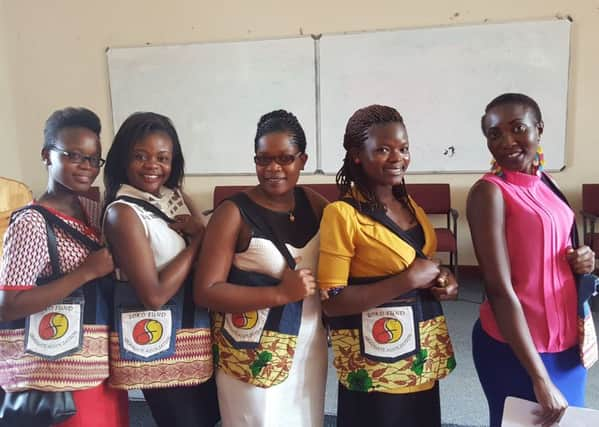Lindsay Graham: helping young Malawi women thrive


Yet despite their clear ability and ambition, not one of them seriously considered moving to the next stage – university. Why not? Well how could they, really, when the fees would likely be at least five times their parents’ annual income.
Fast-forward to 2017 and I am making my fifth visit to Malawi to attend the biennial Soko Scholarship award ceremony. Fifty students from three universities are being presented with Soko Fund Scholarships, with Vice Chancellors, Deans and faculty having travelled across the country to be there. Although women in Malawi still face many barriers when they try to obtain a university education, there has been real progress since my first visit in 1999.
Advertisement
Hide AdAdvertisement
Hide AdFollowing the 2017 Scholarship ceremony, the Soko Fund Graduate Association was launched – an initiative driven by Soko Fund graduates themselves to support each other as they enter employment. They also act as role models for other able young women who are easily discouraged by the cost of university education which remains very high by Malawian standards.
At these impressive events, my sense of the value of higher education is powerfully renewed. Evidence shows the multiplier-effect of educating women is considerable, especially in tertiary education. Higher education has been given a prominent place in the United Nation’s Sustainable Development Goals and its impact spreads far beyond the life of the individual. Qualified professional women play a key role in developing the social, educational and political institutions of poor countries.
The Soko Fund raises all its own income and works through partnerships with four public universities and eight secondary schools. Students are selected on the basis of ability and need, and their scholarship pays tuition fees and a small personal allowance. From a modest beginning in 2004 with just two students, the Soko Fund currently supports 50 undergraduates and has seen over 60 young women through to graduation– a small amount goes a long way.
In Scotland, access to university education can easily be taken for granted, not least because we benefit from not paying fees. The university system in Malawi just can’t do the same. After years of struggling to maintain the infrastructure, the government imposed a fivefold increase in tuition fees in 2015. This has created greater barriers and demonstrated that the Soko Scholarships are now more essential than ever.
Malawi may be one of the poorest countries in the world and face many disadvantages, but its strength is its people. As I listen to the stories of our Soko Scholarship graduates, they powerfully demonstrate the ability of university education to realise this strength – even in the most challenging of places.
Take Winnie. Her gifts and determination to improve not only her own life but that of her whole family impress me every time I talk to her. One of five children growing up in poor community, she had lost both her parents by the age of 13. Five children with nothing and no way to take care of themselves, except a belief in education that Winnie’s mother had always encouraged.
After a great struggle Winnie made it to Mzuzu University at the amazing age of 15, but with no idea of how to pay her university fees. Recognising her abilities, the Dean nominated her to the Soko Fund just as she was about to give up. A Soko Scholarship supported her throughout university and she graduated with distinction. She has been working for several years and is now supporting her siblings through secondary school and into university.
The Soko Fund is one of more than 1,000 people-to-people partnerships between Scotland and Malawi, coordinated by the Scotland Malawi Partnership. Together, all these individual partnerships and projects are helping transform both our nations for the better.
Advertisement
Hide AdAdvertisement
Hide AdMalawi still has amongst the lowest higher education enrolment rates in the world but with active links between each of the universities in our countries, and with inspiring work by the Soko Fund and others, Scots are making an important contribution to support women like Winnie.
To read more powerful stories like Winnie’s visit www.thesokofund.org
Lindsay Graham, Director of the Soko Fund